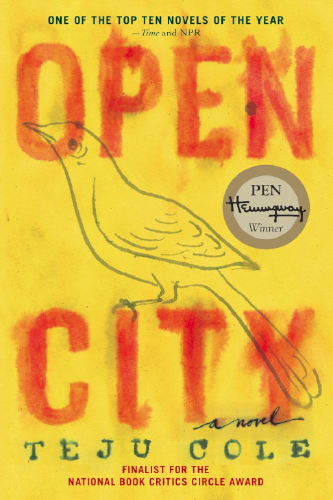
Open City
A Nigerian doctor’s wanderings through New York City and reflections on art, culture, and identity
Summary:
Teju Cole’s “Open City” follows Julius, a Nigerian-German psychiatrist in post-9/11 New York, as he wanders the city’s streets, reflecting on art, history, migration, and memory. The novel is plot-light but rich in encounters: Julius meets immigrants, artists, and strangers, each conversation layering the city’s complexity. Key characters include Dr. Saito, his mentor; Moji, a childhood acquaintance whose accusation of sexual assault haunts the narrative; and a host of fleeting figures who populate Julius’s solitary walks.
Cole’s prose is praised for its lyricism and intelligence—“Each person must see for himself, as he walks, what is to be done, what is to be left undone”—but critics are divided on Julius’s detachment. James Wood called the novel “beautiful, subtle, and, finally, original,” while others, like Michiko Kakutani, noted its “emotional coolness.” The book’s ambiguous treatment of trauma, guilt, and complicity has sparked debate: “I have always been drawn to the loners, the solitaries, the ones who walk the city at night.”
“Open City” is often compared to W.G. Sebald for its meditative style and to Coates for its engagement with race and identity, though Cole’s approach is more elliptical and less confessional. The novel’s ending, with its unresolved confrontation and lack of redemption, has been both lauded for its honesty and critiqued for its evasiveness.
But I didn’t really like the book.
Dripping with arrogance on every page — an elite immigrant doctor’s musings — erudite, but reverential to the Western canon; intelligent, but essentially soulless.
I found it hard to admire the quiet cowardice of the protagonist, who seemed to imbibe the interesting lives of the people around him, but had little to offer himself that is of either courage or interest.
It was, nevertheless, good to experience familiar streets in the city where I grew up, through the musings of a detached foreigner.
The echoes of sexism throughout the book are underlined by the protagonist’s remorseless reaction to accusations of rape from the sister of a childhood friend. His expressed sympathies with terrorism, combined with his eager manner of namedropping the basic liberal arts corpus at the reader — seemed at times pretentious, and at other times, foolish.
What a stark contrast to Ta-Nehisi Coates’ “The Message”, which I just finished reading prior to this book! The two writers are sometimes compared to one another, but Coates’ own travels and reflections show a more honest kind of intellectual maturity — one with a spine, confidence, and conscience.